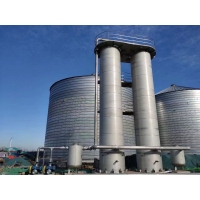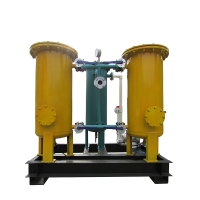What is Gasification
What is Gasification
Gasification is the use of heat to transform solid biomass or other carbonaceous solids into a synthetic 'natural gas like' flammable fuel.
Through gasification, we can convert nearly any dry organic matter into a clean burning fuel that can replace fossil fuel in most use situations.
Whether starting with wood chips or walnut shells, construction debris or agricultural waste, gasification will transform common 'waste' into a flexible gaseous fuel you can use to run your internal combustion engine, cooking stove, furnace or flamethrower.
The gasifier is essentially a chemical reactor where various complex physical and chemical processes take place.
Biomass gets dried, heated, pyrolysed, partially oxidized and reduced in this reactor as it flows through it.
Four distinct processes take place in a gasifier:
1) Drying of the fuel 2)Pyrolysis 3)Combustion 4)Reduction.
Through gasification, we can convert nearly any dry organic matter into a clean burning fuel that can replace fossil fuel in most use situations.
Whether starting with wood chips or walnut shells, construction debris or agricultural waste, gasification will transform common 'waste' into a flexible gaseous fuel you can use to run your internal combustion engine, cooking stove, furnace or flamethrower.
The gasifier is essentially a chemical reactor where various complex physical and chemical processes take place.
Biomass gets dried, heated, pyrolysed, partially oxidized and reduced in this reactor as it flows through it.
Four distinct processes take place in a gasifier:
1) Drying of the fuel 2)Pyrolysis 3)Combustion 4)Reduction.





















































